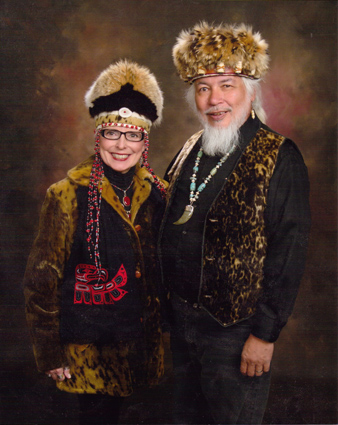In exploring the profound intersections of Bahá’í teachings and Indigenous wisdom, a remarkable narrative unfolds—a narrative that invites a reevaluation of spiritual paradigms and a deeper appreciation for the rich tapestry of cultural heritage. At the heart of this discourse lies the unique contribution of Indigenous messengers, who exemplify the Bahá’í principle of unity in diversity, wherein humanity’s collective spiritual evolution can be harnessed through the symbiosis of diverse cultural perspectives.
The Bahá’í Faith, founded in the mid-19th century by Bahá’u’lláh, emphasizes the oneness of humanity and the necessity for a universal approach to spiritual and social challenges. In this context, Indigenous perspectives offer invaluable insights. They remind us that spirituality is not merely an abstract concept but a lived experience intertwined with the land, culture, and community. Indigenous messengers, through their profound connection to the earth and their cultural narratives, provide a vital lens through which the Bahá’í teachings can be examined, appreciated, and implemented within various sociocultural frameworks.
One of the critical tenets of Bahá’í teaching is the concept of progressive revelation—the belief that spiritual truths are revealed progressively through various messengers, such as Moses, Jesus, Muhammad, and Bahá’u’lláh himself, each addressing the needs of their respective epochs. Indigenous messengers embody this principle, possessing their unique revelations that resonate within their communities. Their wisdom is often steeped in centuries of experiential knowledge, offering a different but complementary pathway to understanding the divine.
Moreover, the story of Indigenous messengers often emphasizes the interconnectedness of life forms, drawing attention to the sacredness of creation. This perspective aligns seamlessly with the Bahá’í assertion that humanity is an integral part of a vast, interconnected whole. The Bahá’í teachings advocate for respect and stewardship of the environment, underscoring the responsibilities we carry toward both the natural world and one another. Indigenous messengers, revered for their intrinsic connection to the earth, encapsulate this philosophy through their traditional ecological knowledge, fostering a holistic view of sustainability that is increasingly pertinent in contemporary discourse surrounding climate change and ecological degradation.
Understanding the role of Indigenous messengers also invites curiosity about the local and regional applications of Bahá’í principles. The Indigenous perspective often brings to light the importance of communal decision-making and the fostering of relationships based on respect, equity, and mutual support—principles that harmonize with the Bahá’í emphasis on consultation and collective progress. While the Bahá’í community is diverse, the infusion of Indigenous wisdom calls for tailored approaches to the application of religious principles, ensuring they resonate within the unique cultural contexts of different communities.
In examining the contributions of Indigenous messengers, one also encounters the challenge and opportunity presented by the reconciliation between Indigenous spirituality and the Bahá’í Faith. For many Indigenous individuals, navigating the terrain of modern religious identity can be complex, as they may face the dual task of honoring ancestral traditions while engaging with contemporary spiritual movements. The Bahá’í teachings offer pathways for this reconciliation, presenting a framework for dialogue that respects the sacred narratives of Indigenous peoples while fostering an inclusive environment that values pluralism. The interplay between these traditions can lead to mutually enriching experiences, fostering community resilience and broader understanding.
Encouragingly, efforts are emerging within the Bahá’í community to elevate Indigenous voices and integrate their unique insights into broader dialogues on spirituality and social justice. This shift not only aligns with the Bahá’í commitment to the elimination of prejudice but also highlights the importance of elevating marginalized narratives within larger religious dialogues. As contemporary society increasingly recognizes the value of plurality, the narrative crafted by Indigenous messenger cultures presents an essential counterbalance to the often monolithic narratives that dominate spiritual discourse.
In considering the profound implications of Indigenous messengers within Bahá’í teachings, a critical examination of the shared communal values invariably surfaces. These values are essential, particularly in a world rife with division and discord. The Bahá’í emphasis on unity—that we must rise above prejudices and embrace our shared humanity—mirrors the collective ethos prevalent in many Indigenous cultures. This concordance invites a re-examination of how spiritual concepts can coalesce into a comprehensive understanding of community well-being and social harmony. Indigenous teachings often emphasize kinship and collective responsibility, profoundly intersecting with Bahá’í principles of service and altruism.
Ultimately, the tales and teachings originating from Indigenous messengers remind us that spirituality is a multifaceted journey. They beckon us to examine the spaces between cultures, prompting curiosity about how these interstitial areas can foster deeper relational understanding. The Bahá’í teachings, with their laudable ideals of peace and unity, stand to be enriched by these diverse narratives. As we contemplate their implications, we embark on a transformative journey—not merely toward spiritual enlightenment but also toward a substantive shift in how we perceive and approach intercultural dialogues.
Through this lens, the integration of Indigenous wisdom within Bahá’í teachings presents both a challenge and an opportunity. It calls upon individuals and communities to remain open-minded and deeply reflective, inviting enrichment from perspectives often overlooked. This approach not only piques curiosity but also ignites a profound shift in consciousness that could potentially redefine our shared future, reaffirming our interconnectedness and collective responsibilities toward each other and the planet.
